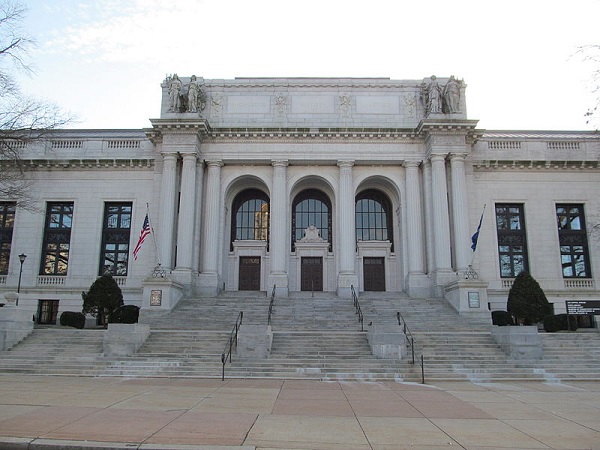By Edmund H. Mahony
Hartford Courant bulletin news online news
(Hartford Courant) — The state Supreme Court on Monday overturned a campaign finance law that limits who candidates can criticize in political ads, giving a win in a free speech case to two Republican legislators fined for attacking former Gov. Dannel P. Malloy’s fiscal policy a decade ago.
Former state Sen. Joe Markley and current Sen. Rob Sampson sued the State Elections Enforcement Commission after they were ordered to pay a combined $7,000 in fines for collaborating on campaign mailers that named Malloy and asserted that they deserved election for fighting against his “reckless spending.”
After receiving a complaint from Sampson’s opponent in the 2014 election, the commission concluded that the fliers violated the state’s public campaign finance law by criticizing a candidate against whom they were not running. By naming Malloy, the commission concluded the two lawmakers were not advocating for their own candidacies, but for that of Malloy’s then Republican challenger, Tom Foley.
bulletin news online news
The Supreme Court, in a unanimous decision written by Chief Justice Richard Robinson, said the state has the right to regulate political speech when enforcing the use of taxpayer funded campaign grants, including prohibiting a candidate from using his campaign grant purely to support another, a practice some have likened to fraud.
But in the case of Markley and Sampson, the court said the commission overstepped its authority by infringing on their right to political free speech. The court found that the two targeted Malloy not to support his opponent but to distinguish themselves from his policies.
“Although a compelling governmental interest is served by a condition that precludes publicly funded candidates from using program funds to support or oppose candidates in other races, we conclude that the commission violated the plaintiffs’ first amendment rights with respect to the five advertisements at issue in this case because they could reasonably be understood to be something other than an appeal to vote against Governor Malloy,” the court wrote.
(Please click onto the image of the cat to hear Classic Rock & Oldies)

The court rejected the argument by the commission that candidates effectively “relinquish” the right to unfettered free speech when they agree to terms of the voluntary public campaign financing system. The commission argued that Markley and Sampson were trying to open a “loophole” in the law that would have allowed “unlimited attack ads in other races funded” by taxpayer funded campaign grants.
Charles Miller, of the Washington, D.C. based Institute for Free Speech, which represented Markley and Sampson, said the court lifted the legal prohibition on candidates naming politicians they are not running against in publicly funded ads, as long as the ads are not designed to support someone in a different race.
bulletin news online news
“They determined that because it is public funds, they have a reasonable standard to make sure that the funds are not misused,” Miller said.
“What they are saying here is that you cannot (is) do express advocacy for another candidate – meaning you can’t take your money and use it to run a campaign for someone else, because that is sort of like fraud. Basically, they are saying don’t commit fraud. That is a very high standard, so we view this as a broad victory.”
Markley said, “I’m happy and relieved to see that this court recognized a candidate’s right to speak freely about the issues that matter to constituents. This win was a long time coming, but it was a crucial victory for free speech in Connecticut.”
Sampson called the decision “a win not just for us, but for all candidates who want to engage in robust political discourse freely and without fear of facing unconstitutional consequences.”
The Supreme Court took the case after the two lost before the commission and later in the Superior Court, where Judge Joseph Shortall said the campaign finance law did not violate free speech rights because Markley and Sampson could have named Malloy in ads paid for with money raised outside their taxpayer campaign grants.
In the 2014 election, Markley applied for and received a $56,814 campaign grant to run for Senate and Sampson got $27,850 for his house race. Both were running in the Southington-Wolcott area. Five of their fliers were subjects of the case.
©2024 Hartford Courant. Visit at courant.com. Distributed by Tribune Content Agency, LLC.
bulletin news online news


